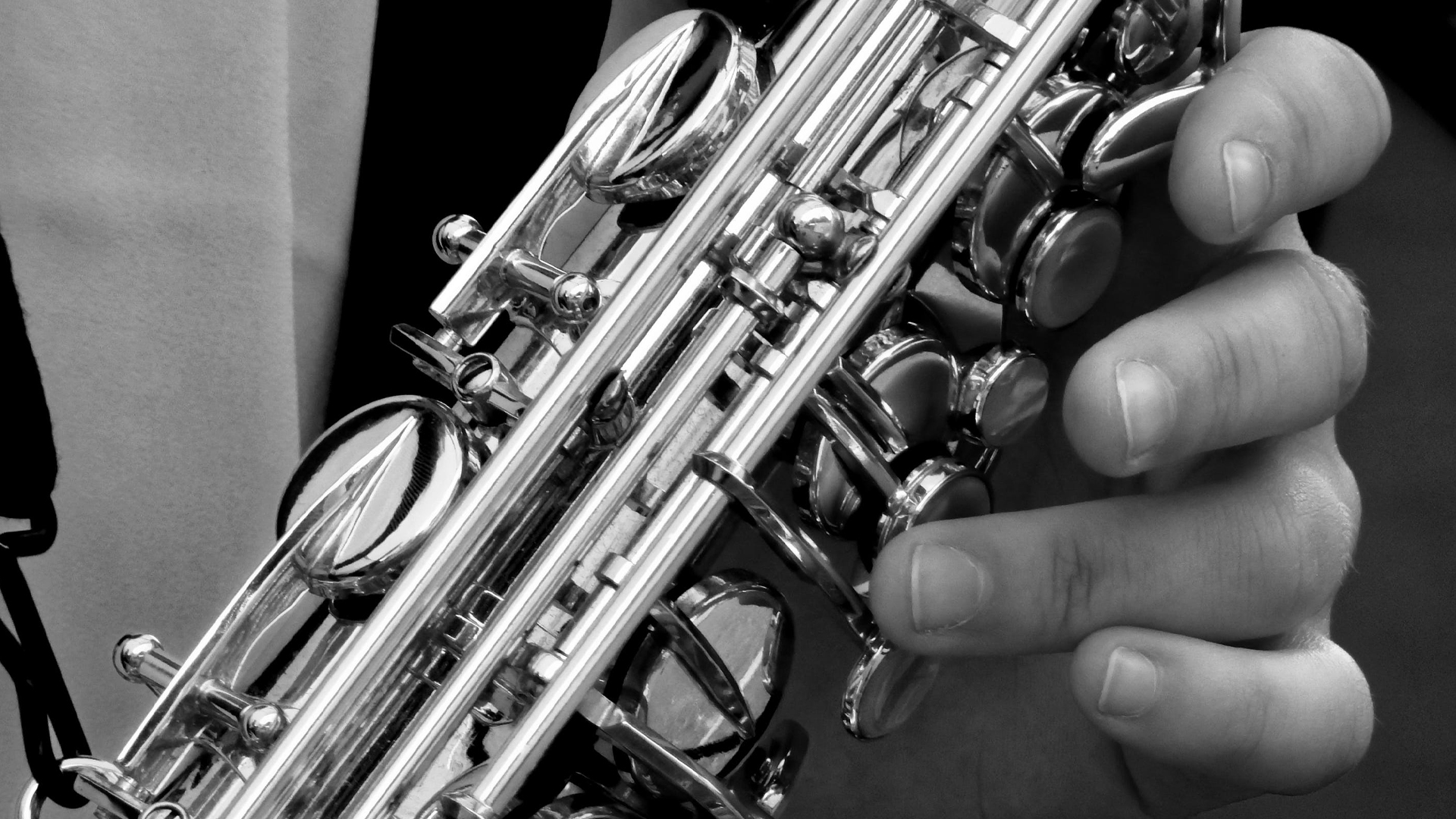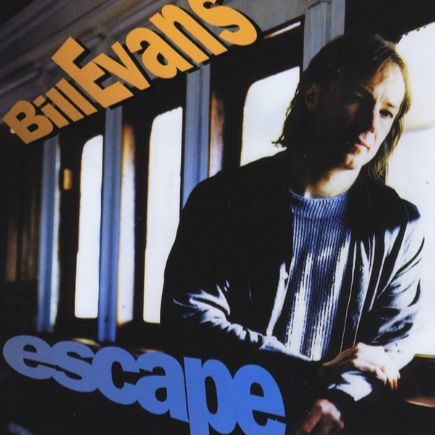Bill Evans, saxophoniste: héritier de la fusion et explorateur des possibles
Saxophoniste ténor et soprano, Bill Evans —à ne pas confondre avec le pianiste du même nom— incarne une trajectoire singulière dans le paysage du jazz contemporain. À la croisée des héritages du saxophone moderne et des audaces de la fusion, il développe depuis les années 1980 une œuvre profondément personnelle, marquée par une constante recherche d’équilibre entre tradition et innovation.
Formé très tôt au piano classique, il se tourne vers le saxophone sous la tutelle de Dave Liebman, qui le recommande à Miles Davis. En 1980, Bill Evans rejoint le groupe du légendaire trompettiste, participant activement à son retour sur la scène internationale après une longue période de silence. Aux côtés de Miles jusqu’en 1984, il insuffle une énergie neuve, ancrée dans l’esthétique post-Bitches Brew, mêlant lyrisme, tension rythmique et recherche sonore. Son jeu s’inscrit dans la filiation de Coltrane, Shorter ou Brecker, mais affirme une voix singulière, à la fois vive et nuancée.
Sa carrière se poursuit au sein de projets majeurs: il intègre le Mahavishnu Orchestra de John McLaughlin pendant trois ans, enregistre plusieurs disques avec le groupe Elements, participe à l’album Primitive Cool de Mick Jagger, et fonde le groupe Petite Blonde, formation de haut vol réunissant Dennis Chambers, Victor Bailey, Mitch Forman et Chuck Loeb.
Mais Bill Evans s’impose aussi comme leader. Dès 1984, avec Living in the Crest of a Wave, il trace un chemin personnel. Albums après albums, il explore des croisements inattendus: jazz et bluegrass avec Soulgrass, groove urbain et énergie brute avec Soul Insider, un disque percutant nommé aux Grammy Awards en 2002. Son style conjugue les élans du funk, les couleurs du jazz moderne et l’urgence du rock. Au ténor, il déploie une puissance maîtrisée; au soprano, une expressivité fine et intimiste.
Improvisateur accompli, il continue de tracer un sillon original, nourri de collaborations prestigieuses (Herbie Hancock, Lee Ritenour, Andy Summers) et d’une vision musicale toujours ouverte. Bill Evans demeure l’un des rares saxophonistes à avoir su, avec cohérence et audace, faire dialoguer les langages du jazz sans en trahir l’esprit.
Bill Evans, saxofonista: heredero de la fusión y explorador de nuevos horizontes
Saxofonista tenor y soprano, Bill Evans —a no confundir con el célebre pianista del mismo nombre— representa una trayectoria singular dentro del jazz contemporáneo. En la encrucijada entre la herencia del saxofón moderno y las audacias de la fusión, ha desarrollado desde los años ochenta una obra profundamente personal, marcada por la búsqueda constante de un equilibrio entre tradición e innovación.
Formado inicialmente en piano clásico, se orienta hacia el saxofón bajo la tutela de Dave Liebman, quien lo recomienda a Miles Davis. En 1980, Evans se une al grupo del legendario trompetista, participando activamente en su regreso a los escenarios internacionales tras un largo retiro. Hasta 1984, aporta una energía renovada, enraizada en la estética post-Bitches Brew, que mezcla lirismo, tensión rítmica y exploración sonora. Su estilo remite a Coltrane, Shorter o Brecker, pero afirma una voz propia, vibrante y matizada.
Su carrera se amplía con proyectos destacados: integra el Mahavishnu Orchestra de John McLaughlin durante tres años, graba varios discos con el grupo Elements, participa en el álbum Primitive Cool de Mick Jagger y funda el grupo Petite Blonde, junto a Dennis Chambers, Victor Bailey, Mitch Forman y Chuck Loeb.
También se afirma como líder. Desde Living in the Crest of a Wave (1984), traza un camino singular. Álbum tras álbum, explora cruces sorprendentes: jazz y bluegrass en Soulgrass, groove urbano y energía visceral en Soul Insider, un álbum contundente nominado al Grammy en 2002. Su estilo fusiona la energía del funk, las sonoridades del jazz moderno y la urgencia del rock. Al tenor despliega una potencia controlada; al soprano, una expresividad delicada e íntima.
Improvisador completo, continúa cultivando un enfoque original, nutrido por colaboraciones de alto nivel (Herbie Hancock, Lee Ritenour, Andy Summers) y una visión musical siempre abierta. Bill Evans sigue siendo uno de los pocos saxofonistas capaces de hacer dialogar los lenguajes del jazz con coherencia y audacia, sin traicionar nunca su espíritu.
Bill Evans, sassofonista: erede della fusion ed esploratore delle possibilità
Sassofonista tenore e soprano, Bill Evans —da non confondere con l’omonimo pianista— rappresenta un percorso atipico nel panorama del jazz contemporaneo. A cavallo tra l’eredità del sassofono moderno e le audacie della fusion, dal 1980 ha costruito un’opera personale e coerente, fondata su un equilibrio costante tra tradizione e innovazione.
Formatosi inizialmente al pianoforte classico, si orienta verso il sassofono sotto la guida di Dave Liebman, che lo raccomanda a Miles Davis. Nel 1980 entra nel gruppo del leggendario trombettista, partecipando attivamente al suo ritorno sulle scene dopo anni di silenzio. Fino al 1984, Evans porta un’energia nuova, radicata nell’estetica post-Bitches Brew, che fonde lirismo, tensione ritmica e ricerca timbrica. Il suo stile richiama Coltrane, Shorter o Brecker, ma si afferma con una voce propria, intensa e sfumata.
La sua carriera prosegue con progetti di rilievo: suona per tre anni con la Mahavishnu Orchestra di John McLaughlin, incide diversi dischi con il gruppo Elements, partecipa all’album Primitive Cool di Mick Jagger e fonda Petite Blonde, insieme a Dennis Chambers, Victor Bailey, Mitch Forman e Chuck Loeb.
Ma è anche come leader che Evans si distingue. A partire da Living in the Crest of a Wave (1984), traccia un percorso originale. Con Soulgrass esplora la fusione tra jazz e bluegrass, mentre con Soul Insider —album nominato ai Grammy nel 2002— coniuga groove urbano e forza immediata. Il suo stile fonde l’energia del funk, le armonie del jazz moderno e l’urgenza del rock. Al tenore esprime una potenza controllata, al soprano una sensibilità intima e raffinata.
Improvisatore solido e versatile, continua a sviluppare una visione musicale aperta e coerente, arricchita da collaborazioni di prestigio (Herbie Hancock, Lee Ritenour, Andy Summers). Bill Evans resta uno dei pochi sassofonisti ad aver saputo unire, con coerenza e coraggio, i linguaggi del jazz senza comprometterne l’essenza.
Bill Evans, saxophonist: fusion heir and fearless explorer
Tenor and soprano saxophonist Bill Evans —not to be confused with the famed pianist of the same name— has charted a singular path through the landscape of contemporary jazz. Bridging the legacy of modern saxophone masters with the bold innovations of jazz fusion, he has, since the 1980s, developed a deeply personal body of work defined by a constant search for balance between tradition and innovation.
Originally trained as a classical pianist, Evans turned to the saxophone under the mentorship of Dave Liebman, who recommended him to Miles Davis. In 1980, he joined Davis’s band, playing a key role in the trumpeter’s return to the global stage after years of absence. Until 1984, Evans infused the group with fresh energy grounded in the post-Bitches Brew aesthetic, blending lyricism, rhythmic tension, and sonic exploration. While echoing influences like Coltrane, Shorter, and Brecker, Evans asserts a distinctive voice—bold, nuanced, and uniquely his own.
His career evolved through major projects: three years with John McLaughlin’s Mahavishnu Orchestra, recordings with the group Elements, a contribution to Mick Jagger’s Primitive Cool, and the founding of Petite Blonde, alongside Dennis Chambers, Victor Bailey, Mitch Forman, and Chuck Loeb.
Evans also emerged as a strong bandleader. Starting with Living in the Crest of a Wave (1984), he carved his own path. Album after album, he explored unexpected intersections: jazz meets bluegrass in Soulgrass; urban groove and raw energy in Soul Insider, a powerful 2002 release nominated for a Grammy. His style fuses the drive of funk, the harmonic palette of modern jazz, and the urgency of rock. On tenor, he delivers muscular, focused lines; on soprano, a more intimate and refined expressiveness.
A skilled and versatile improviser, Bill Evans continues to chart an original course, enriched by high-profile collaborations (Herbie Hancock, Lee Ritenour, Andy Summers) and a consistently open musical vision. He remains one of the rare saxophonists to bridge the languages of jazz with both coherence and daring—without ever compromising its spirit.


